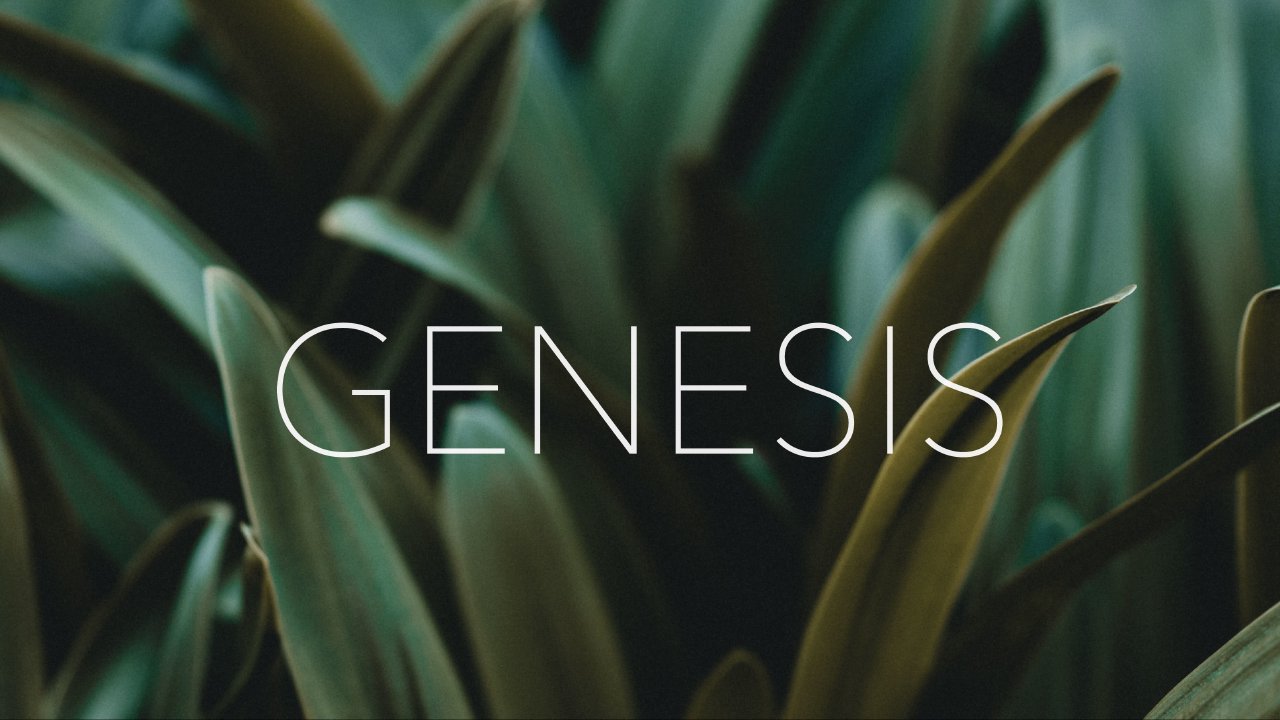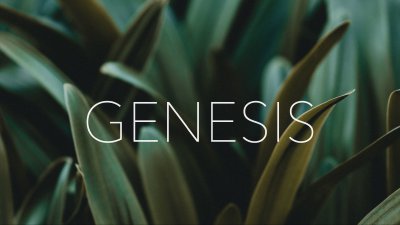For further reflection:
1. After God tells Abraham to sacrifice Isaac, we see Abraham’s response in Genesis 22:3: “So Abraham got up early in the morning and saddled his donkey, and took two of his young men with him and his son Isaac; and he split wood for the burnt offering, and set out and went to the place of which God had told him.”
How would you describe Abraham’s attitude in these verses?
2. When Isaac asks Abraham where the sacrifice is, Abraham replies in Genesis 22:8: “God will provide for Himself the lamb for the burnt offering, my son.” Many years later when Jesus comes to Earth, he is called “the Lamb of God who takes away the sin of the world” (John 1:29).
What does Genesis 22:8 foreshadow in regard to Jesus?
3. Think about a specific way God calls you to obey him that doesn’t make sense to you. Say or journal a prayer expressing your struggle to God. Then, ask God to give you the ability to obey him through His Spirit.
“The Cross of Jesus (feat. Robbie Seay)”
Written and Performed by Ashley Rush
All rights reserved. Used by permission

Faithful Obedience
Genesis: Episode 13
April 5, 2021 • Genesis 21:1–5, Genesis 22:1–19
The Power of God
April 5, 2021 • Genesis 1:31, Genesis 1:1–26
For further reflection: 1. Read John 1:1-3: “In the beginning was the Word, and the Word was with God, and the Word was God. He was in the beginning with God. All things came into being through Him, and apart from Him not even one thing came into being that has come into being.” Now read Genesis 1:1-3: “In the beginning God created the heavens and the earth. And the earth was a formless and desolate emptiness, and darkness was over the surface of the deep, and the Spirit of God was hovering over the surface of the waters. Then God said, “Let there be light”; and there was light.” Write down similarities between these two sets of verses. What key truths are highlighted in both passages? 2. Read Genesis 1:31: “And God saw all that He had made, and behold, it was very good. And there was evening and there was morning, the sixth day.” According to this verse, what does God say after he creates mankind? How is this different from the other days of creation? What do you think is the significance of this difference? 3. Where in your own life do you doubt God's power? What do you often turn to instead of turning to him? Confess this to God, and reflect on his nature as the all-powerful creator. “Steadfast God” Written and Performed by Breakaway Worship All rights reserved. Used by permission
The Purpose of Humanity
April 5, 2021 • Genesis 1:26—2:3
For further reflection: 1. Read Genesis 1:28: “God blessed them; and God said to them, ‘Be fruitful and multiply, and fill the earth, and subdue it; and rule over the fish of the sea and over the birds of the sky and over every living thing that moves on the earth.’” Summarize God’s command in your own words. What does it look like to live out the callings in this verse today? 2. Read Genesis 2:3: “Then God blessed the seventh day and sanctified it, because on it He rested from all His work which God had created and made.” Now read Mark 2:27: “Jesus said to them, “The Sabbath was made for man, and not man for the Sabbath.” God set an example for us in the way he took time to rest on the seventh day, also called the Sabbath day. The Mark verse tells us that this day of rest is for our own good. Why is it important for us to practice the discipline of rest, even if we are not feeling tired? 3. In Genesis, we learn that every type of work is an opportunity to reflect and represent God. Think about an area in your life that feels mundane and lacking in purpose. In light of this devotional, how might you change your perspective on this area of your life? “Heaven’s Eyes” Written and Performed by Jillian Edwards Courtesy of Concord Music Publishing Cashagamble Jet Music (BMI) / Be Essential Songs (BMI) / (admin at http://essentialmusicpublishing.com). All rights reserved. Used by permission
The Root and Remedy of Sin
April 5, 2021 • Genesis 2:16–17, Genesis 3:1–6, Genesis 2:9
For further reflection: 1. Read God’s commands to Adam in Genesis 2:16-17: “The Lord God commanded the man, saying, ‘From any tree of the garden you may freely eat; but from the tree of the knowledge of good and evil you shall not eat, for on the day that you eat from it you will certainly die.’” Now, compare it with Satan’s words to Eve in Genesis 3:1: “Has God really said, ‘You shall not eat from any tree of the garden’?” How does the serpent twist God’s command? What response is he looking for from Eve? 2. By eating of the forbidden tree, Adam and Eve took the authority to decide for themselves what is good and what is evil. Why is it a problem for humans to have this type authority? 3. Reflect on an area where you might be acting as your own god and authority instead of trusting in God's path to life. “The Cross of Jesus (feat. Robbie Seay)” Written and Performed by Ashley Rush All rights reserved. Used by permission





